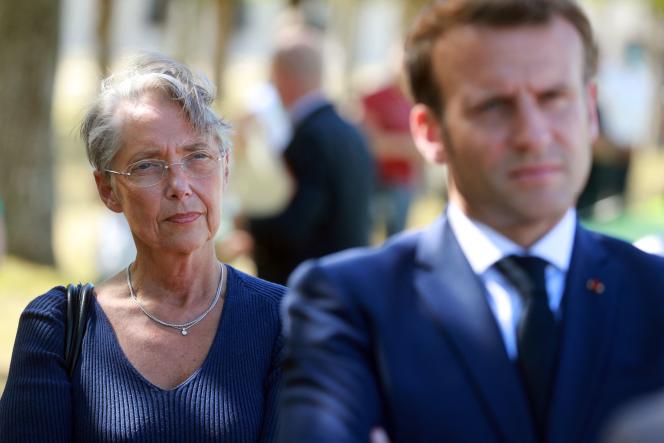Twenty-two days after the re-election of Emmanuel Macron as President of the Republic, the Head of State decided to appoint, Monday, May 16, Elisabeth Borne as Prime Minister to begin her second five-year term, replacing Jean Castex. The latter submitted the resignation of the government, Monday afternoon, and must give way, during a transfer of powers to Matignon, to the one who was hitherto Minister of Labor.
First in charge of transport, then of the ecological and solidarity transition, she had taken the head of a large ministry of work, employment and integration in July 2020. With this appointment, it is a new chapter of her career in the administration and politics that opens, began when she joined the cabinet of Lionel Jospin, then Minister of National Education, as a technical adviser in 1991.
First woman appointed to Matignon since Edith Cresson (May 1991 – April 1992), from the left – she was director of the cabinet of Ségolène Royal at the Ministry of Ecology, during the five-year term of François Hollande -, Ms. Borne did not never held an elective office. An important point of difference with his two predecessors, Edouard Philippe and Jean Castex, who was not considered blocking by Mr. Macron, first in search of a prime minister “attached to the social question, to the environmental question and to the productive question”. Three areas covered by Ms. Borne during her work in government, which began after her departure from the presidency of RATP, which she had led since 2015.
Former president of the RATP and executive of the SNCF
During the first part of Mr. Macron’s five-year term, the engineer from the corps des ponts et chaussées, a graduate of Polytechnique, led the reform of the Société nationale des chemins de fer français (SNCF), the subject of long battles with the unions of railwaymen. Ms. Borne knew the file perfectly as former director of strategy for the railway group (2002-2007) and former prefect of the Poitou-Charentes and Vienne regions (2013 and 2014), where she notably had to manage the issue. small railway lines.
At the same time, Mrs. Borne also participated in the construction of the mobility orientation law (LOM), intended to replace the orientation law for interior transport of 1982, and which is passed, under her watch, when it is at the head of the Ministry of Ecology. At the Hôtel de Roquelaure for almost a year, Ms. Borne was able to test the ministry’s limited political and budgetary room for maneuver while concluding two other legislative projects: the energy-climate law, adopted in November 2019, and the on the fight against waste and the circular economy of February 2020.
Appointed to the Ministry of Labour, Employment and Integration after the ebb of the first wave of Covid-19 contamination, in July 2020, Ms. Borne was notably responsible for negotiations with companies regarding the regularization of the implementation of teleworking. At the same time, she completed the unemployment insurance reform (which experienced many difficulties when it came into force), the development of apprenticeships, the youth engagement contract and the personal training account.
In early May, Ms. Borne announced that she would be a candidate in the legislative elections in the 6th constituency of Calvados. It has since been invested there under the banner of Ensemble!, bringing together several formations linked to the presidential majority.

















